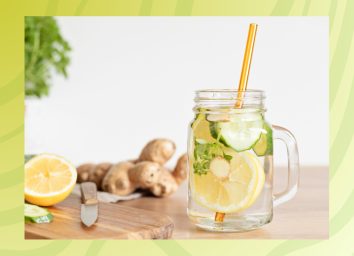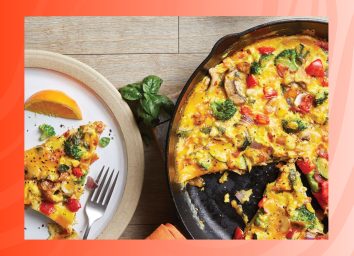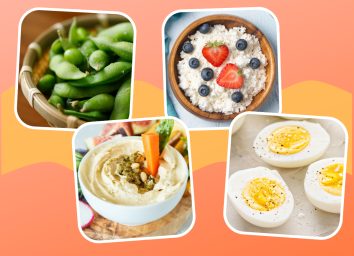25 Healthy Foods That Fight Aging, According to Dermatologists
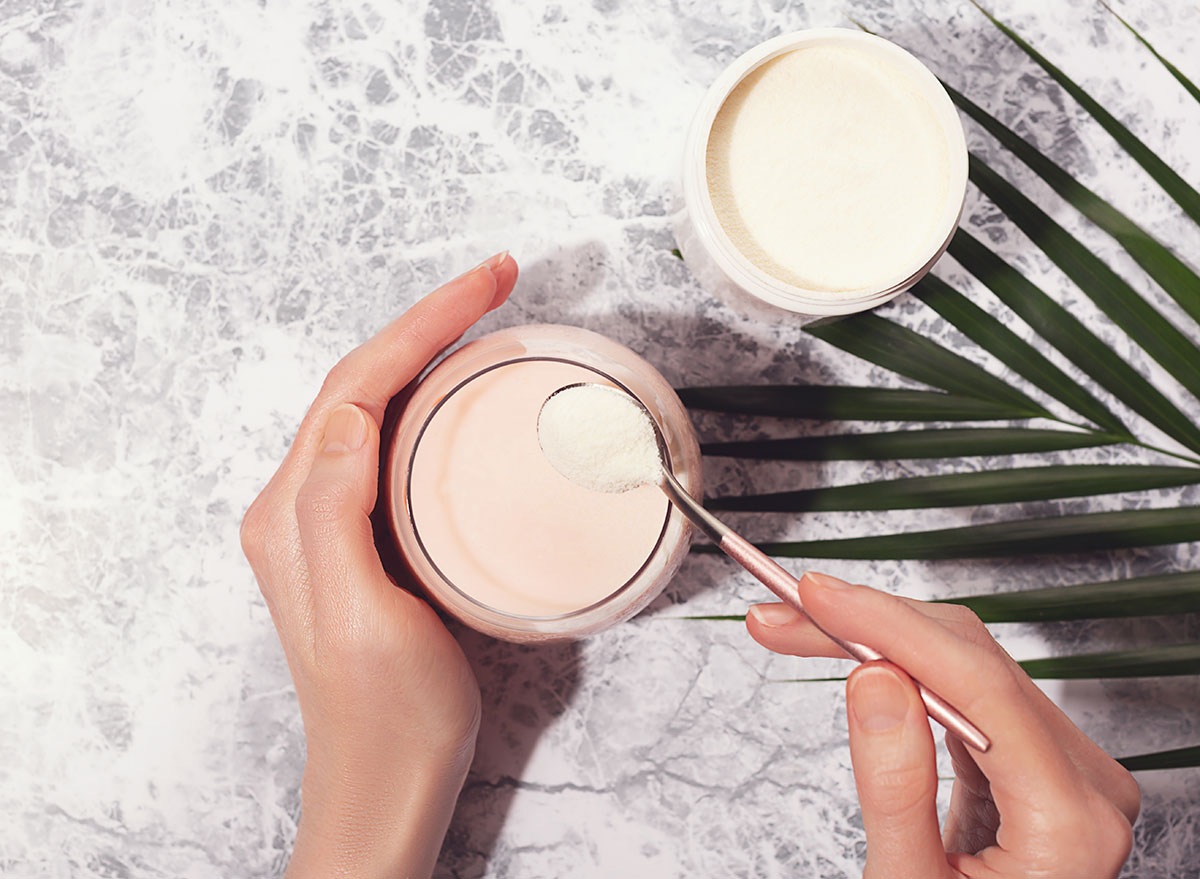
As we age, our skin is one of the first places it shows. But skin aging is caused by a number of things beyond just the years we're alive for.
"Skin aging is the result of both intrinsic biologic processes that contribute to chronologic aging, as well as extrinsic factors such as ultraviolet (UV) radiation, smoking, pollution, and poor nutrition," says Jacquelyn Sink, MD, a dermatologist at Northwestern Medicine Central DuPage Hospital.
While it's important to wear a hat outside and avoid smoking, another preventative anti-aging skincare measure is to eat a healthy diet. "As with all aspects of our health, prevention is key. Eating a balanced, nutritional diet full of foods and beverages that are rich in antioxidants is a preventative strategy over which we can exert significant control to combat the natural processes of aging," adds Dr. Sink.
We asked dermatologists and skincare experts for the best foods to include in your diet to fight skin aging and help keep your skin fresh and glowy. Read on, and for more on healthy eating, don't miss 7 Healthiest Foods to Eat Right Now.
Garlic

"Research studies have shown that compounds in garlic reduce wrinkle formation after UVB exposure by protecting against collagen damage," says Rajani Katta, MD, board-certified dermatologist and author of Glow: The Dermatologist's Guide to a Whole Foods Younger Skin Diet.
Acai berries
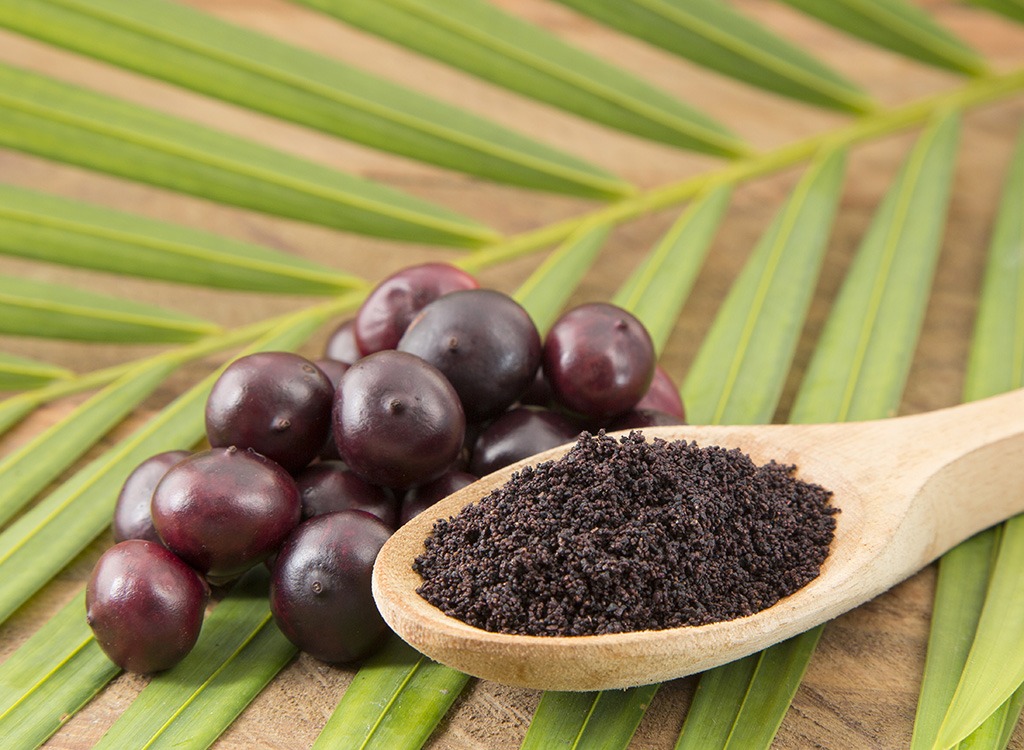
"Elasticity and youthful skin is all dependent on antioxidants and exfoliation. The antioxidants from acai berries will help prevent cell mutation, which helps with lines and wrinkles," says celebrity facialist Joanna Vargas, founder of Joanna Vargas Salons and Skin Care and author of Glow From Within. "It also contains vitamin C, a necessary element in at least 7 different important functions within the body including collagen production."
Chia Seeds

"Chia seeds are rich in omega 3s. Omega 3 fatty acids help contribute to the skin barrier function," says Hadley King, MD, a board-certified dermatologist practicing in New York City. "Eating these healthy fats helps to support the skin barrier."
Cinnamon
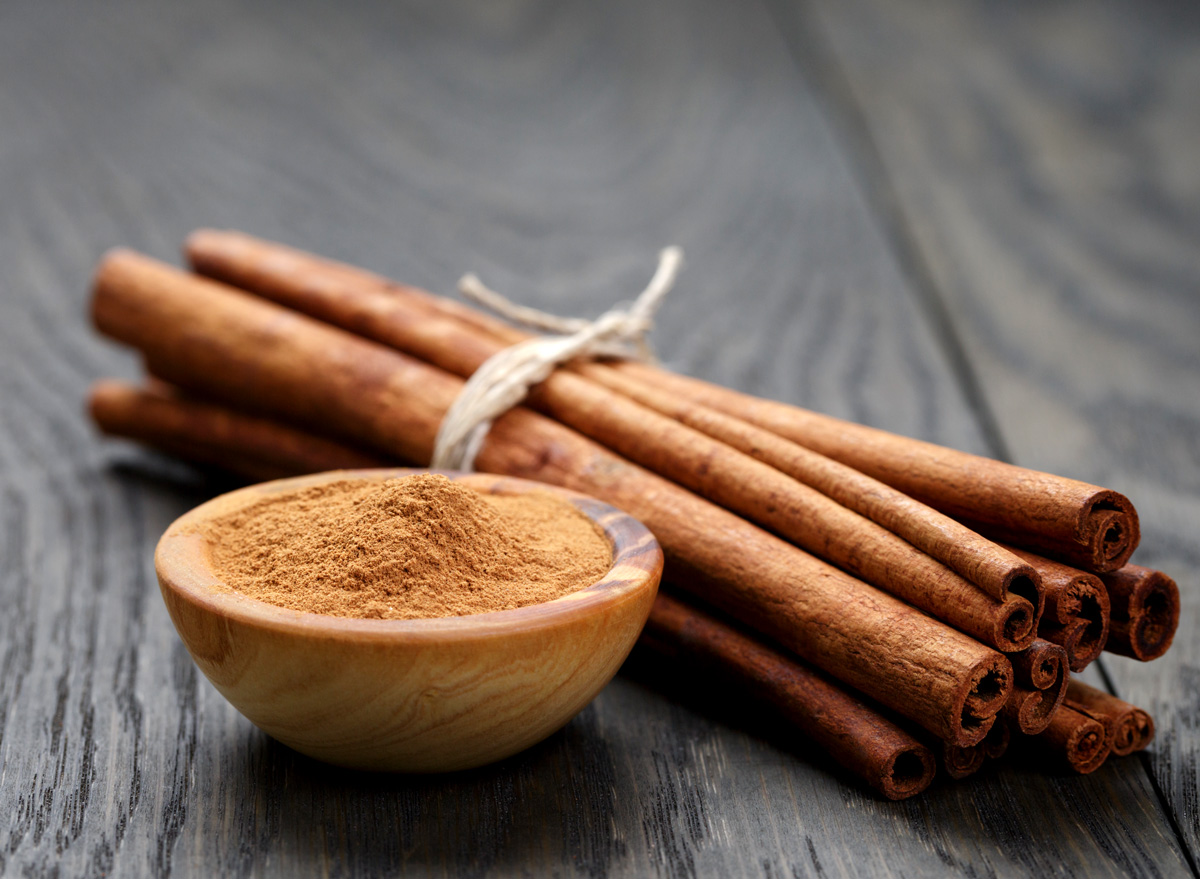
"Many herbs and spices, including cloves, cinnamon, and oregano, are powerful, concentrated sources of antioxidants," says Dr. Katta. "These antioxidants act to quench the damaging effects of free radicals. In fact, I call herbs and spices triple threats, because they've been shown to combat all three of the major forces that age our skin."
Salmon
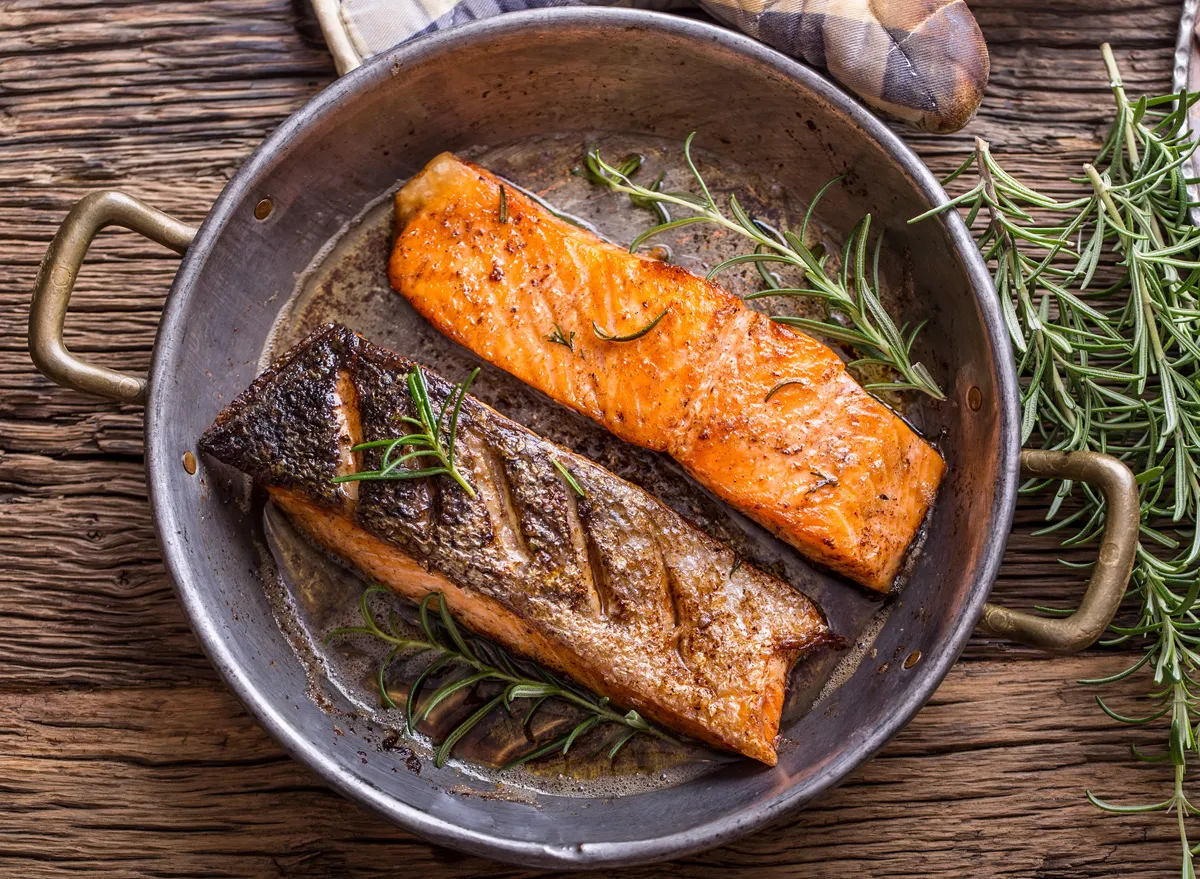
"There are very few food groups that naturally contain vitamin D, but fatty fish is one such group. Examples of fatty fish include salmon, lake trout, albacore tuna, mackerel, and sardines. Vitamin D is essential for our skin, hair, and bone health. Epidemiologic studies suggest a higher risk of cancer, infection, and autoimmune disease in individuals with low vitamin D levels," says Dr. Sink. "Exposure to the sun is a main source of vitamin D. However, as dermatologists, we recommend strict daily sun protection for prevention of photoaging and skin cancers. In addition, many of us live in climates where we do not get adequate vitamin D from sun exposure year-round. By eating foods like fish that naturally contain vitamin D, we can feel good about continuing to wear sunscreen, even during the cooler months! Bring on the sunscreen!"
Celery and Cucumbers
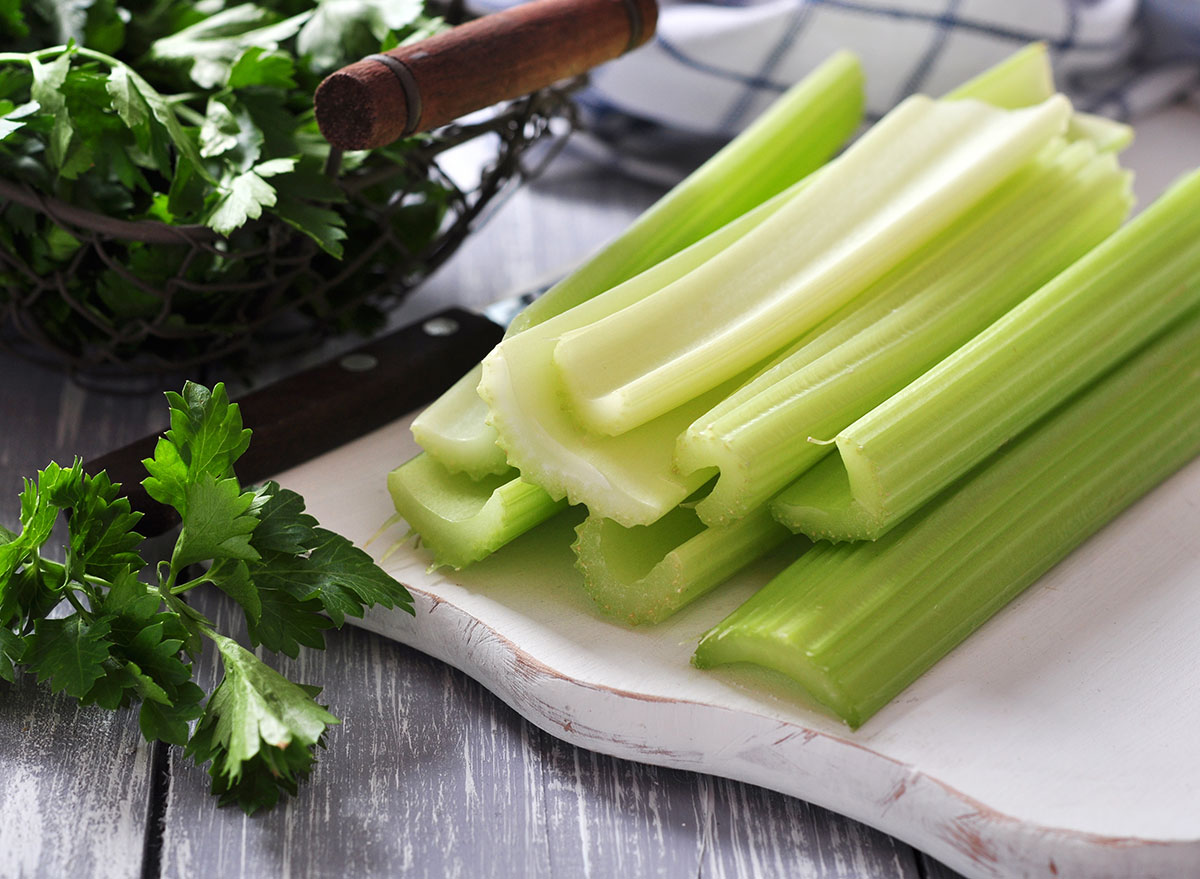
"Celery and cucumber are also great additions to your diet for youthful-looking, supple skin," says Vargas. "They both contain silica, an ingredient that boosts moisture and elasticity."
Blueberries

"Blueberries are rich in antioxidants," says Dr. King. "Antioxidants help to combat damage from free radicals from UV rays and pollution. These free radicals can contribute to premature aging of the skin."
Oranges
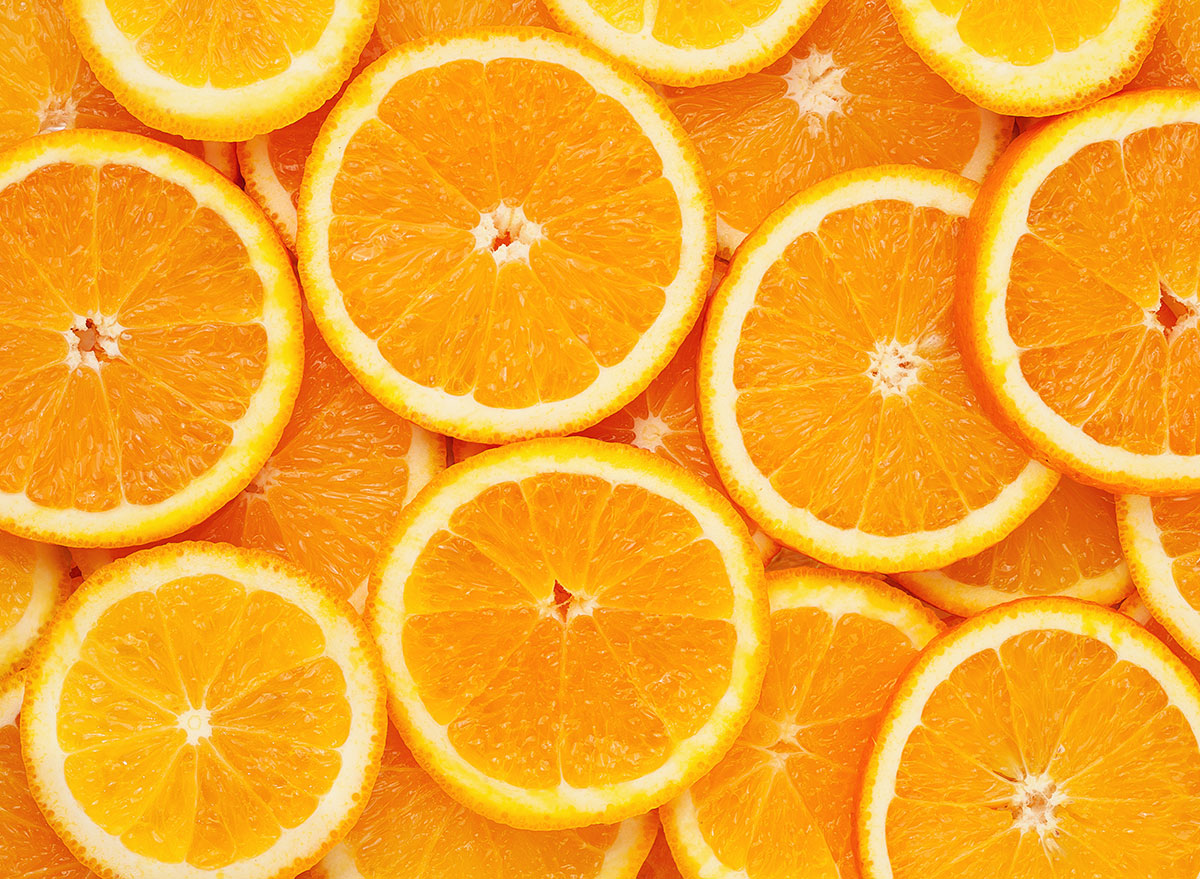
"Citrus fruits such as grapefruit and orange are a top source of vitamin C, as are red peppers, kiwis, and broccoli. As humans, we are unable to synthesize vitamin C on our own, so it is an essential component of our diet. Vitamin C is a powerful antioxidant and is required for the synthesis of collagen in our skin and other tissue," says Dr. Sink. "As we age, the collagen in our skin becomes depleted and contributes to skin aging. Collagen is like scaffolding for our skin, playing a critical role in skin elasticity. Therefore, dietary intake of vitamin C may help us maintain the structural integrity of our skin and delay the effects of photoaging."
Just make sure to get your vitamin C from whole oranges, not orange juice: What Happens to Your Body When You Drink Orange Juice.
Avocado
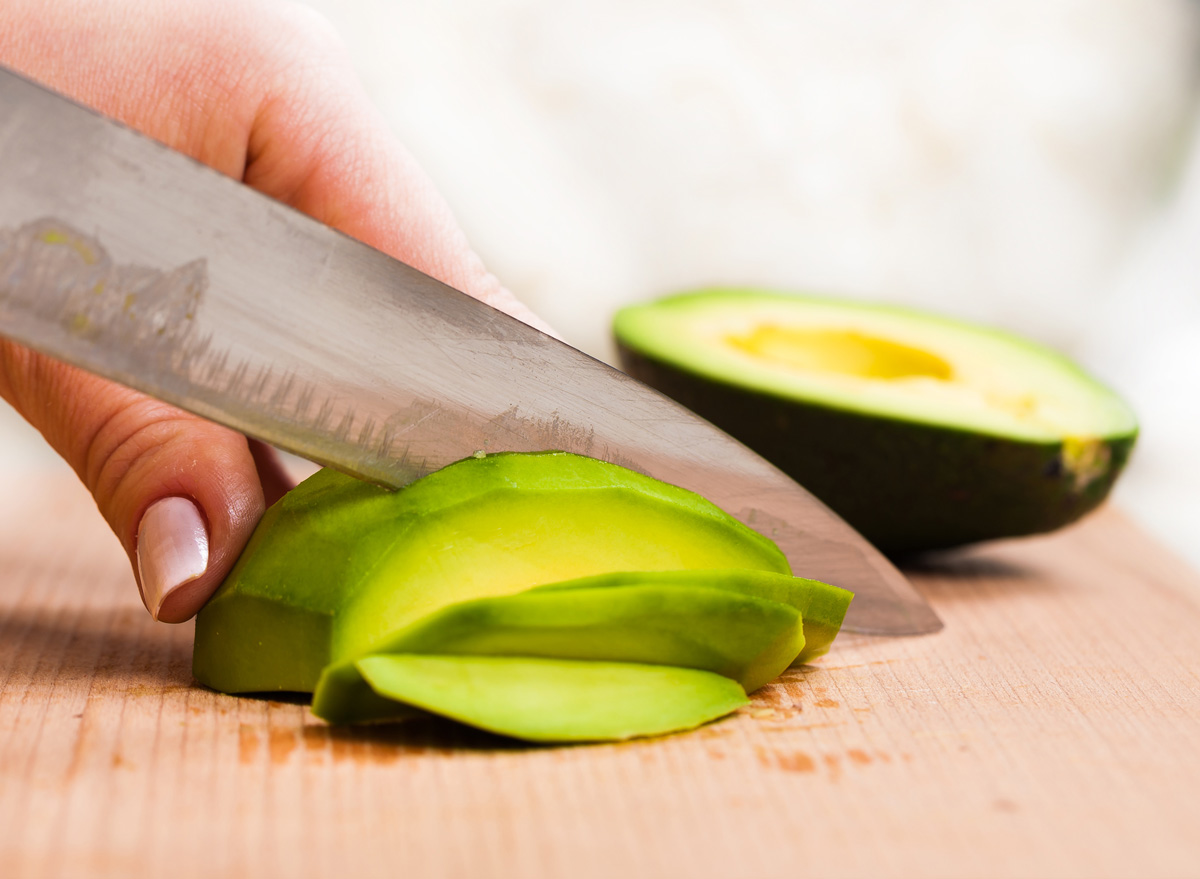
"Avocado is a favorite of mine because it works for everyone. It's loaded with B vitamins and fatty acids, so it really soothes and restores the skin while helping to stimulate the lymphatic system," says Vargas. "My top tip is to eat avocado in a green smoothie every day to help keep the skin hydrated from the inside. It has omega 3 fatty acids to keep the skin's lipid layer moist and plump."
Adds Dr. Sink, "Foods that are rich in fatty acids have the potential to reduce skin inflammation and protect our skin against aging. Avocados are rich in alpha-linolenic acid, an essential fatty acid that has been shown to reduce dryness and textural irregularities associated with skin aging."
Red kidney beans
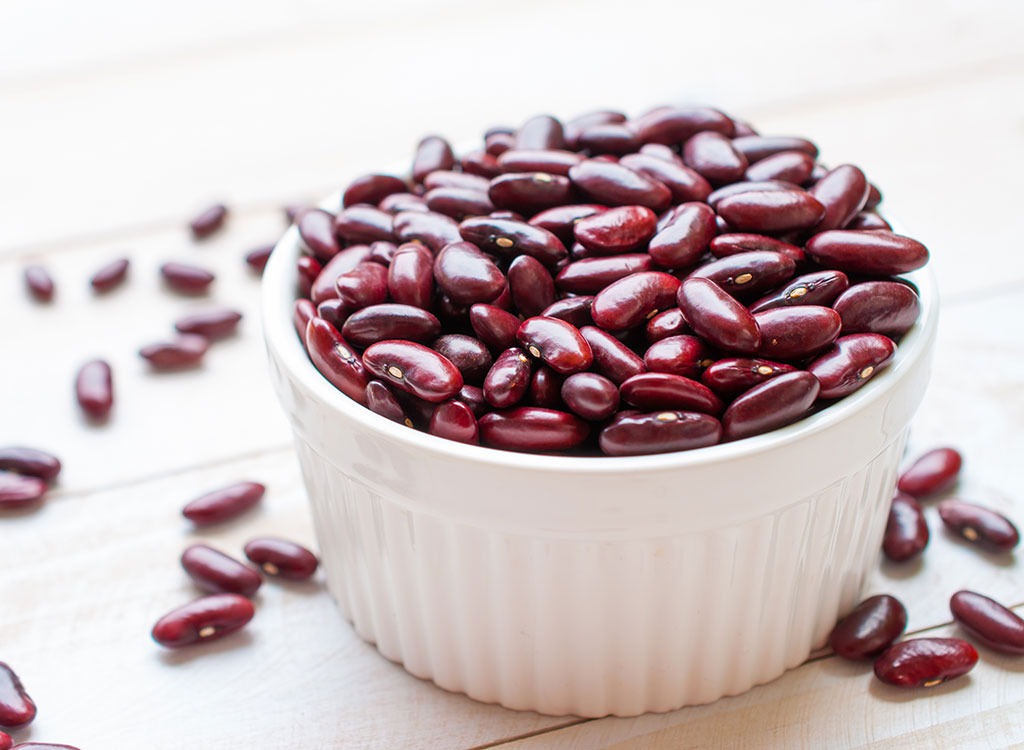
"I consider these great multitaskers," says Dr. Katta. "Red kidney beans are rich in antioxidants and are a great source of prebiotic fiber. They're also a great source of minerals such as zinc, which are important in combating inflammation."
Tomatoes
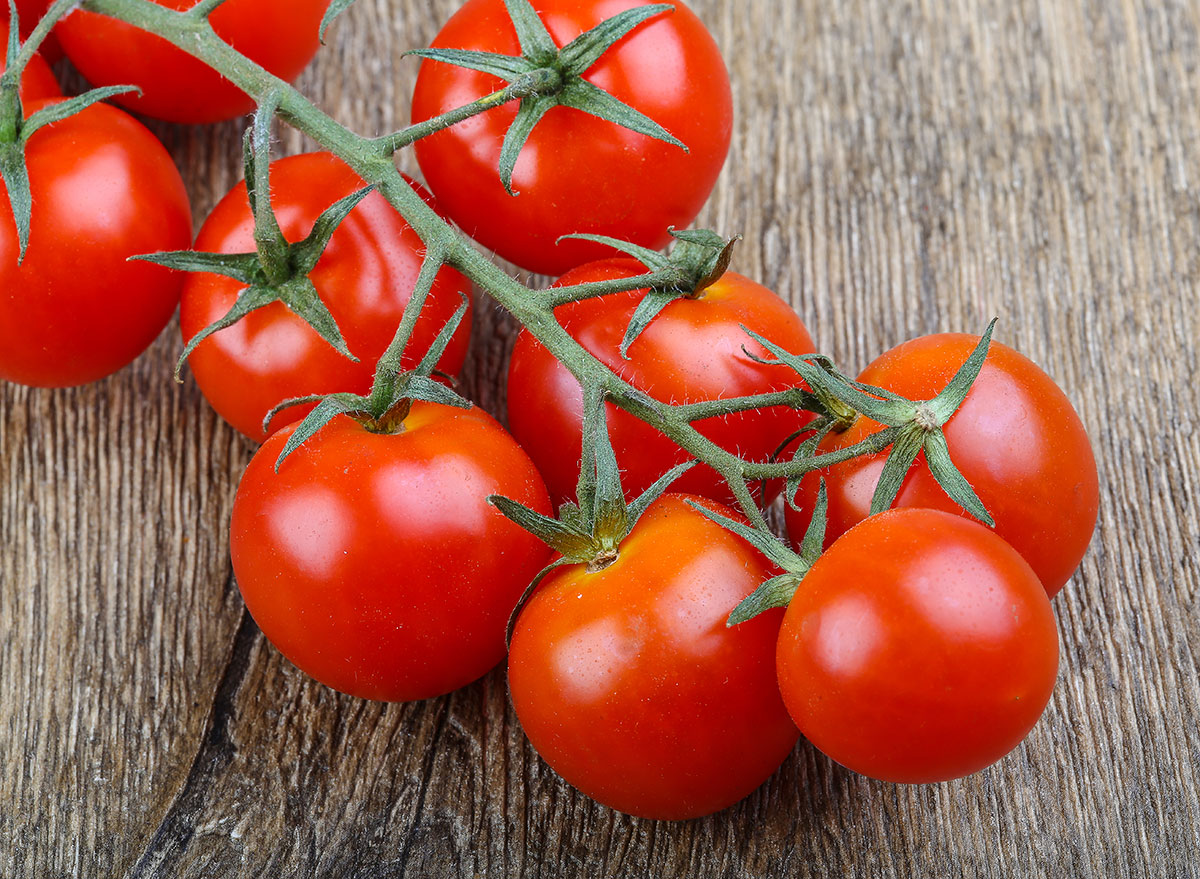
"Tomatoes are rich in lycopene and increasing dietary levels of lycopene helps to ensure the presence of this potent antioxidant in the skin where it can protect from sun damage and make the skin smoother," says Dr. King.
Almonds

"Almonds contain beneficial fatty acids and antioxidants," says Dr. Katta. "In one experiment, volunteers who consumed a daily snack of almonds for four months were examined before and after. After the experiment, the group consuming almonds had a reduction in their wrinkle severity."
Grilled Chicken
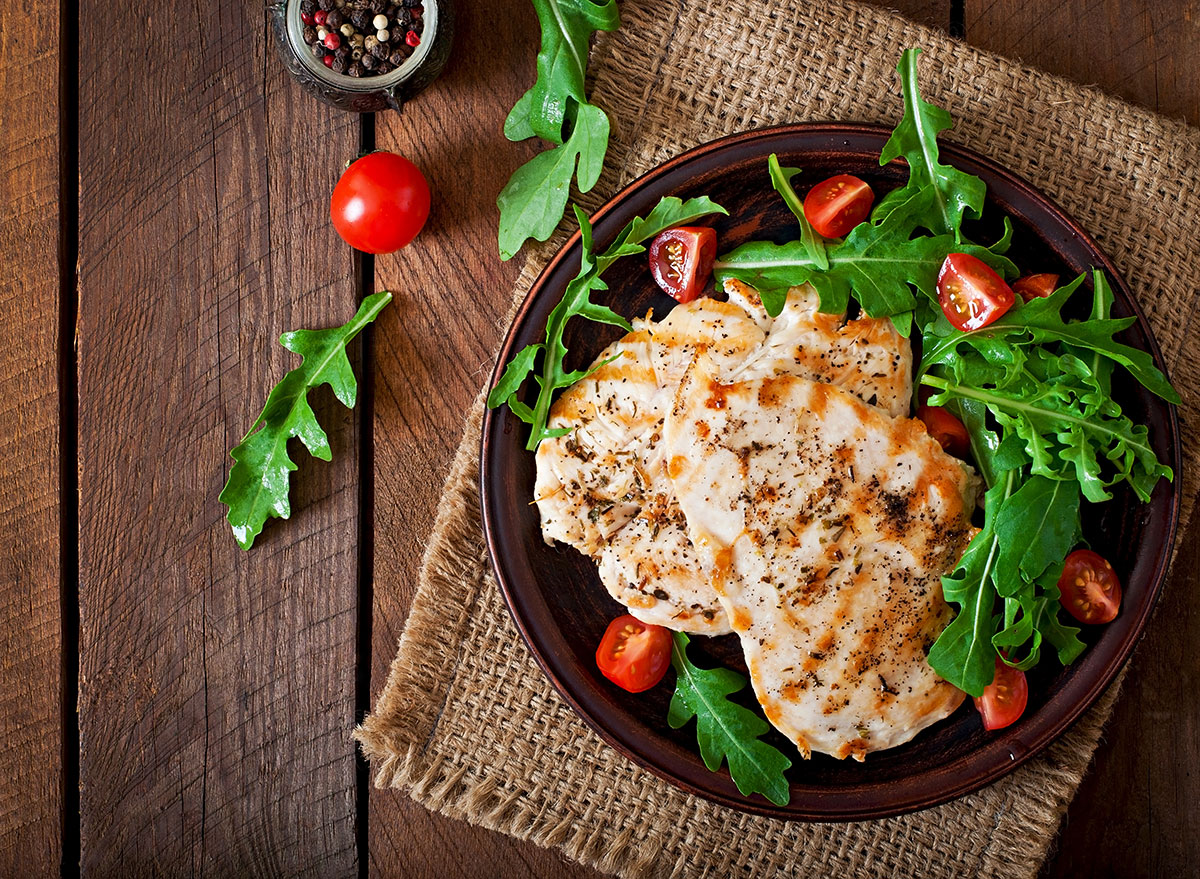
"Lean meats such as chicken and turkey breast contain high amounts of bioavailable vitamin B3 or nicotinamide. Studies have demonstrated that nicotinamide, the physiologically active form of vitamin B3, may protect us from developing certain skin cancers as well as sun-induced hyperpigmentation (uneven skin tone) over time," says Dr. Sink. "Nicotinamide is also known to be anti-inflammatory and increases the production of ceramides and other important structural components that protect our skin from the elements."
Shellfish
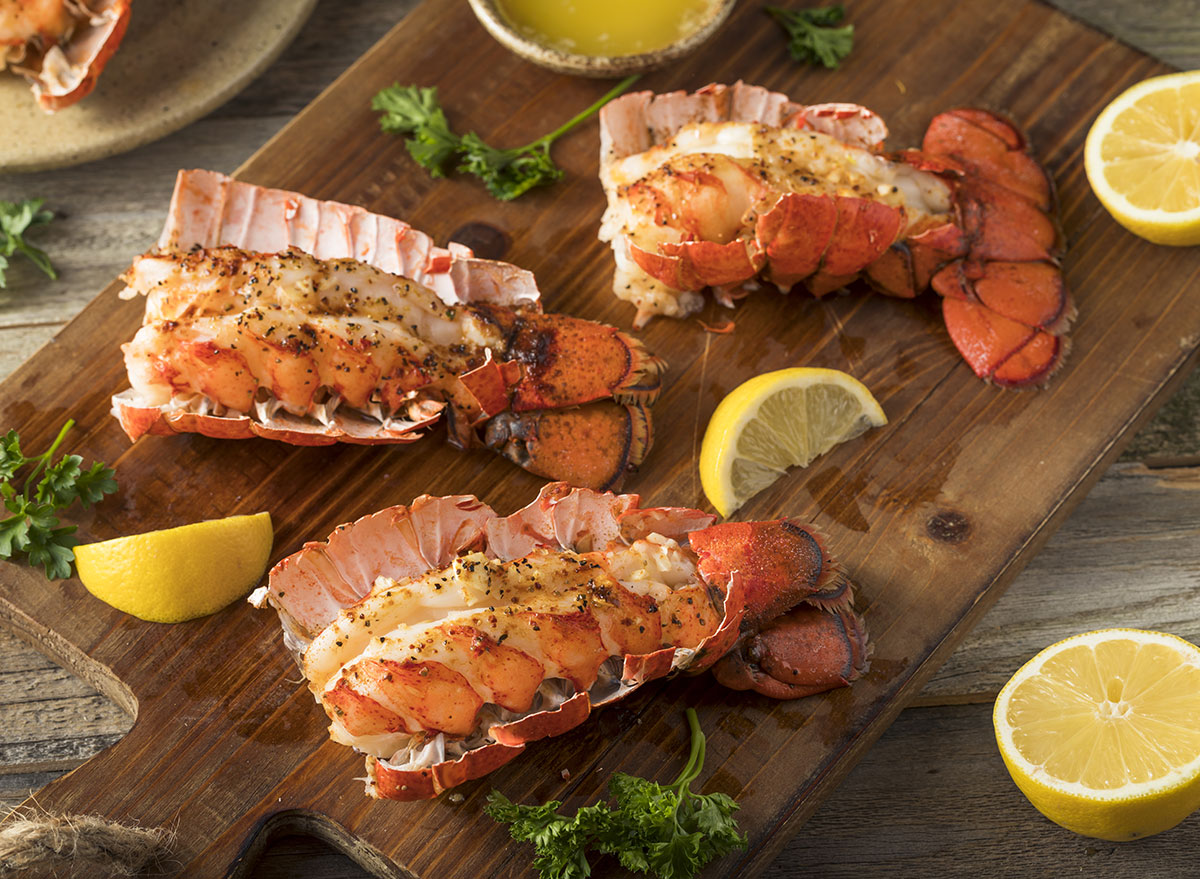
"Shellfish like lobster and crabs are also full of selenium, which, along with vitamin E, helps keep your skin smooth and free of wrinkles," says Vargas.
Basil
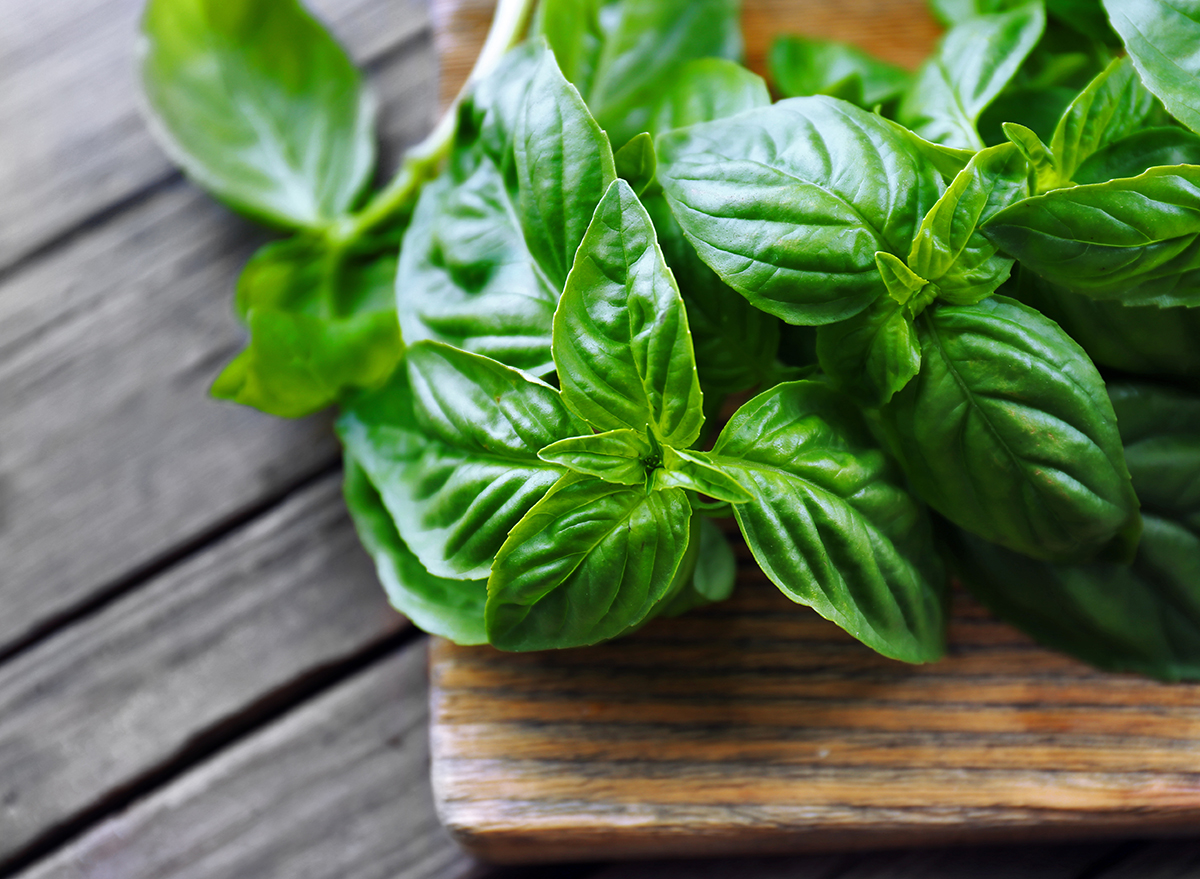
"This is one of my favorite herbs, and I love to use it in pesto," says Dr. Katta. "Basil contains a compound called apigenin which has been shown to increase levels of DNA repair genes following UV exposure."
Kiwis
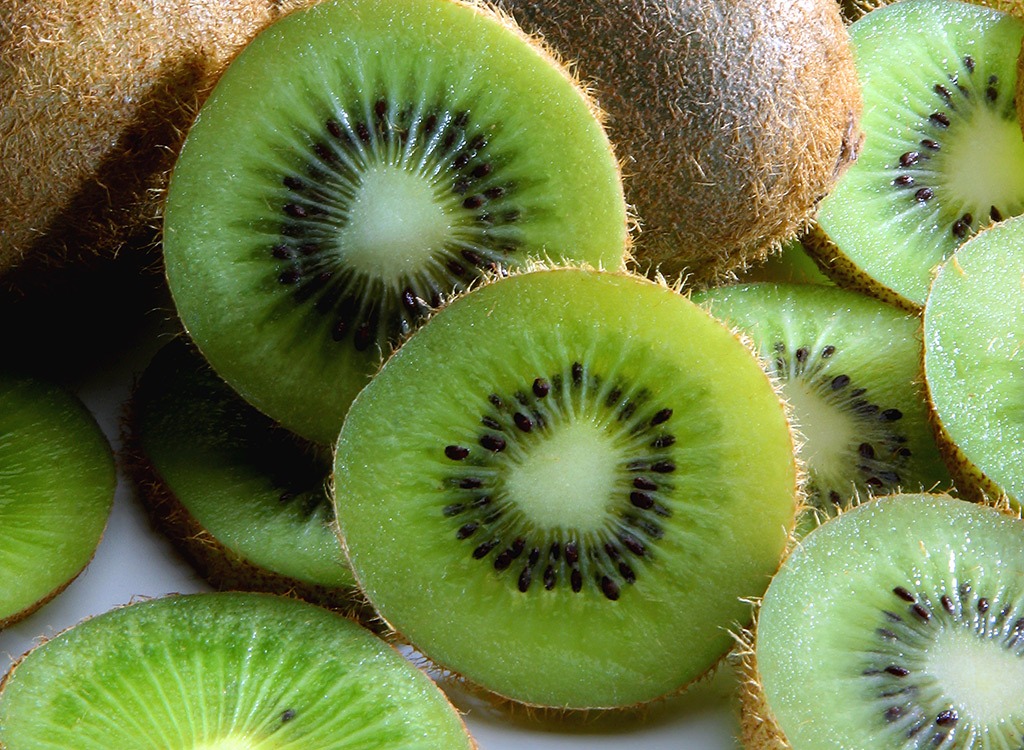
"Kiwi fruit is rich in antioxidants, including vitamin C," says Dr. King. "Vitamin C is required in the pathway the body uses for making collagen."
Related: These 10 Foods Are Better Than Collagen Supplements
Turmeric
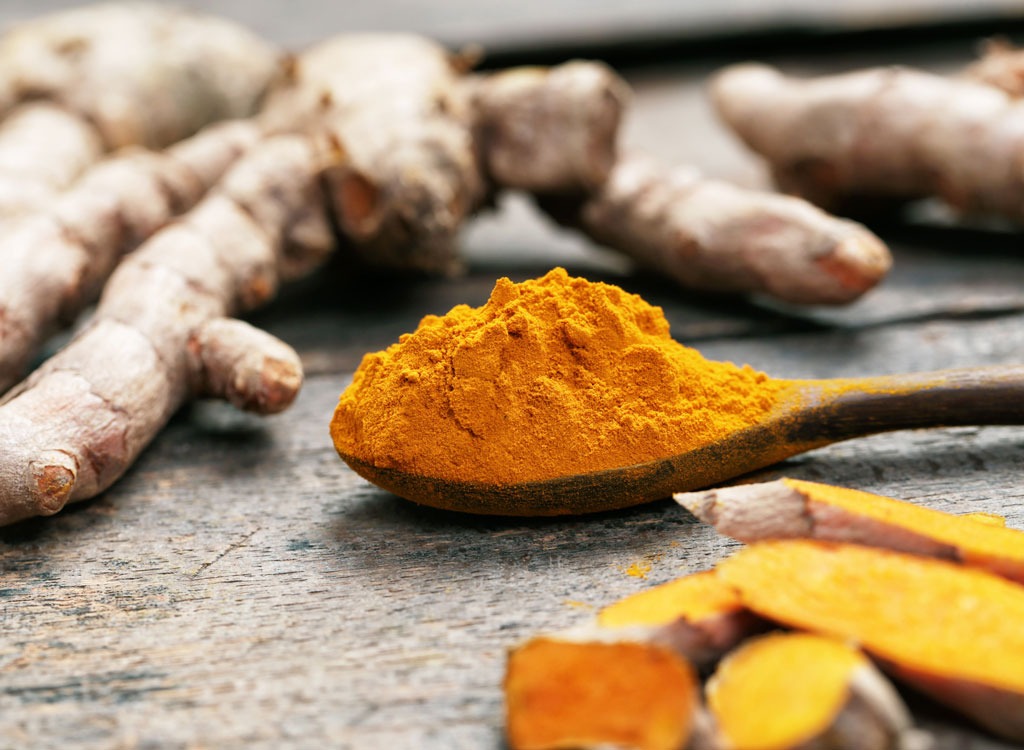
"This golden spice, popular in Indian cuisine, contains a powerful compound called curcumin," says Dr. Katta. "In research studies, this compound blocks the pathway that leads to collagen damage following UV radiation exposure."
Green Tea
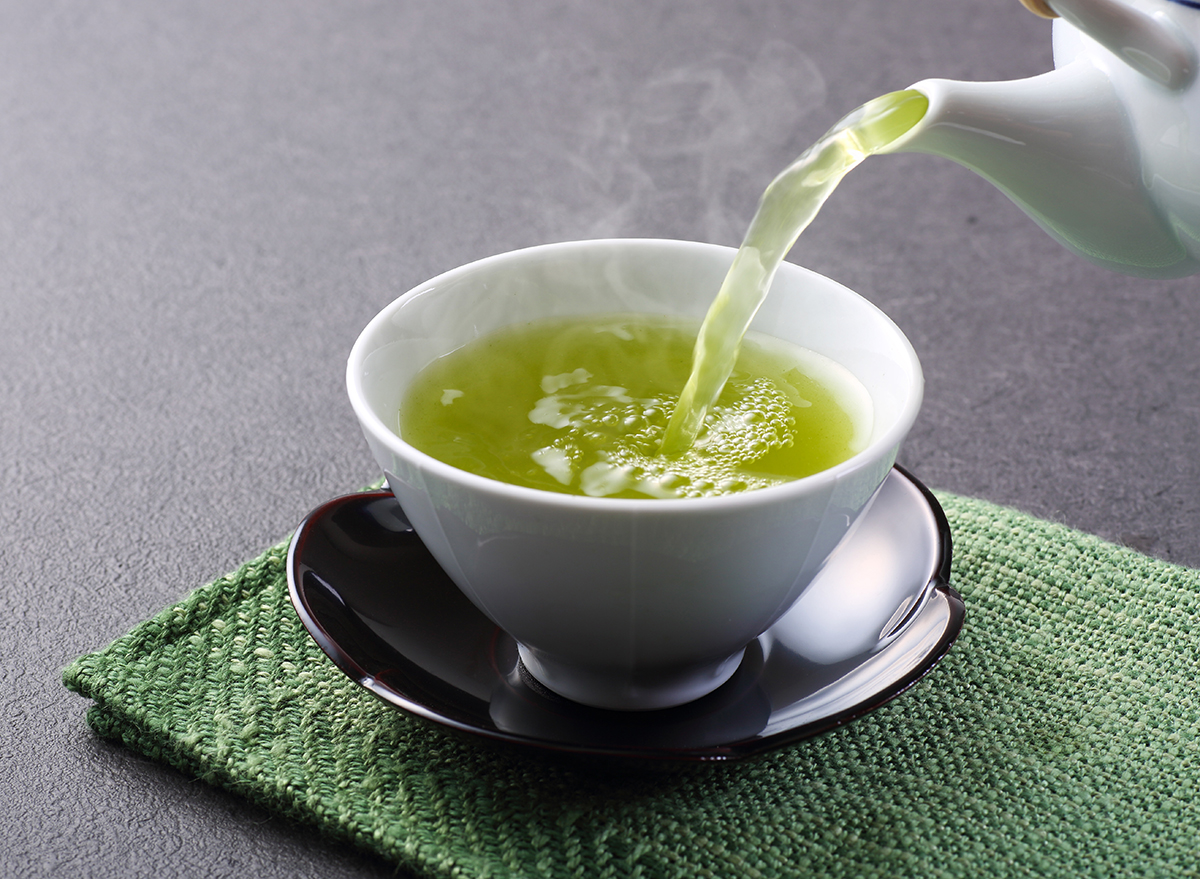
"Polyphenols are strong antioxidants. They are found in fruits and plant-derived beverages, such as fruit juices, tea, coffee, and red wine," says Dr. Sink. "Studies have shown that in combination with sunscreen, polyphenols can protect us from UV-induced skin damage, as well as lead to an improvement in skin wrinkles and skin elasticity."
Greens
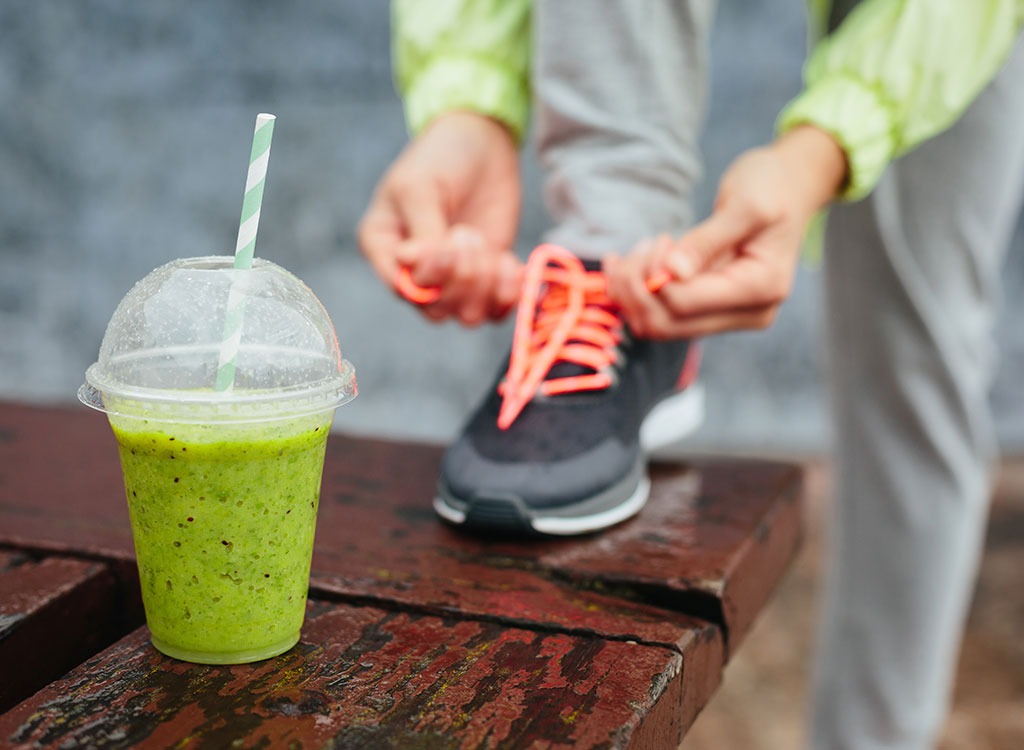
"I love an all greens juice with romaine, celery, cucumber, spinach, parsley, kale and apple with a dash of lemon and ginger," says Vargas. "A green juice instantly hydrates the skin while encouraging lymphatic drainage, so you are de-puffed and glowing! Greens are great for dry skin too because they are oxygenating and bring life into the skin."
Adds Dr. Sink, "Leafy vegetables like kale and spinach that contain chlorophyll and coenzyme Q10 help protect us from carcinogens that cause DNA damage and cellular aging, which may translate to reduced skin wrinkles and improvement in overall skin texture."
Kefir
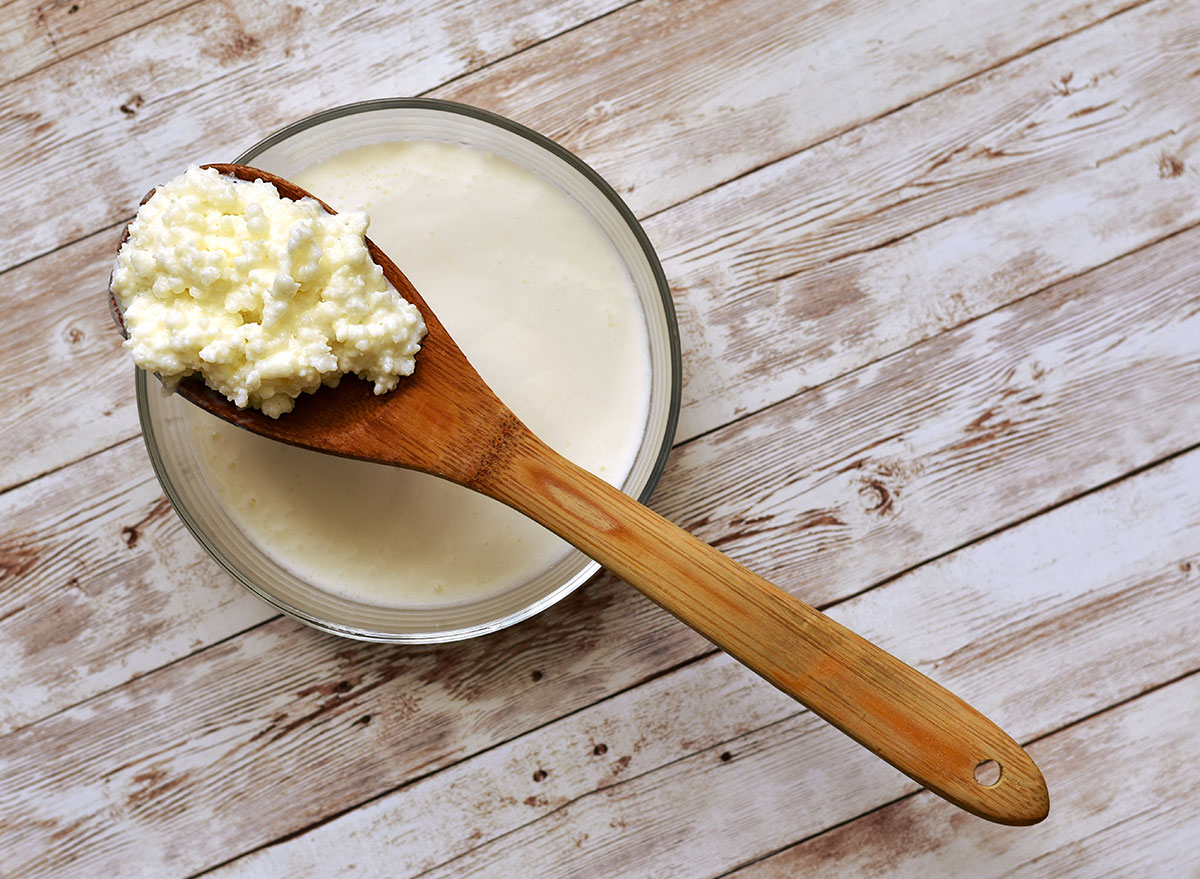
"Probiotic foods are great to add to your diet, because their live active cultures of microbes can help support good gut health," says Dr. Katta. Kefir, a fermented dairy drink, contains high levels of beneficial probiotic bacteria.
Collagen supplements/drinks
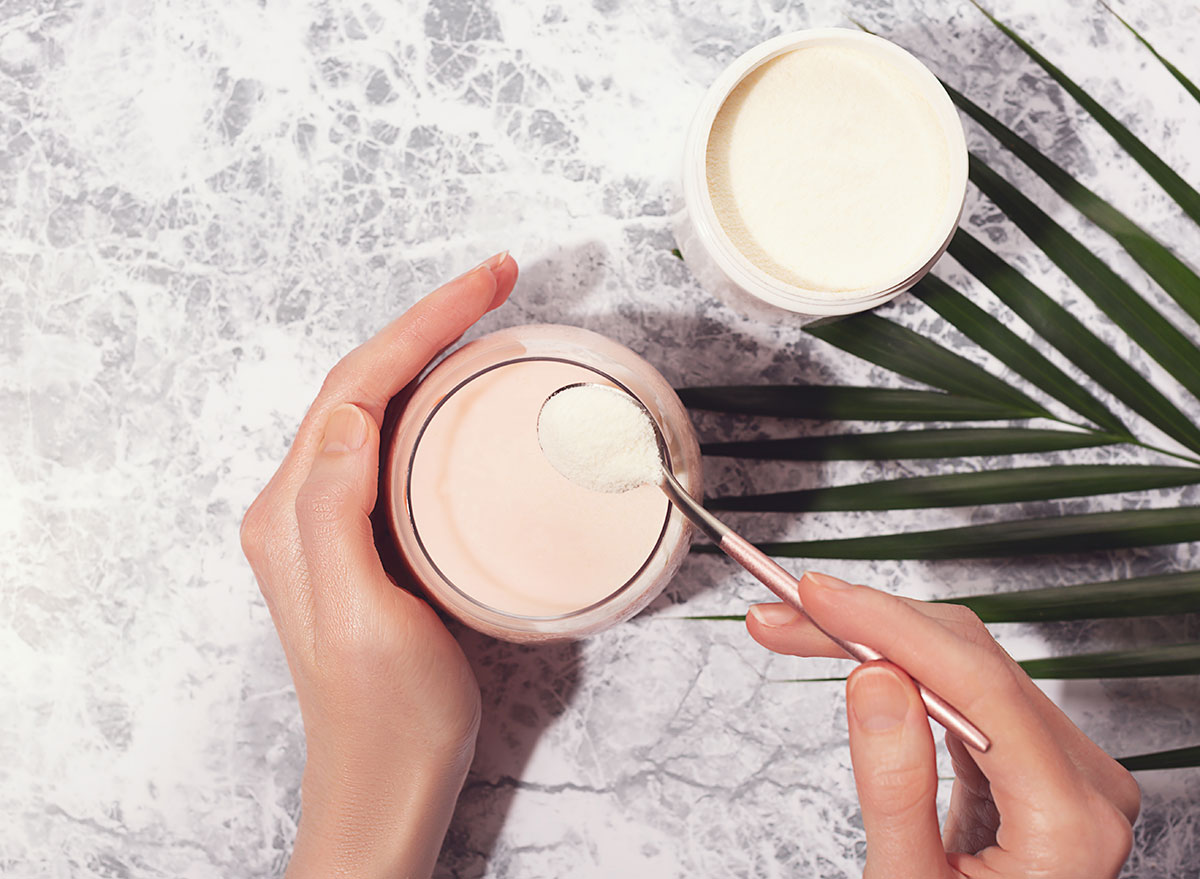
According to Dr. King, the jury is still out on whether collagen will preferentially concentrate in the skin when we consume it.
"If it does, then that helps our skin by directly increasing collagen," says Dr. King. "If it doesn't, then potentially it is helping by providing amino acid building blocks for our body to produce collagen."
However, a 2019 review of randomized controlled trials using oral collagen supplementation for the treatment of skin aging concluded that preliminary results are promising for the short and long-term use of oral collagen supplements for wound healing and skin aging as well as skin elasticity, hydration, and dermal collagen density.
Two studies (including this and this) found that 2.5 grams of hydrolyzed collagen daily may benefit skin health, including skin hydration, wrinkles, elasticity, roughness, and density.
Related: What Happens To Your Body When You Take Collagen Every Day
White tea
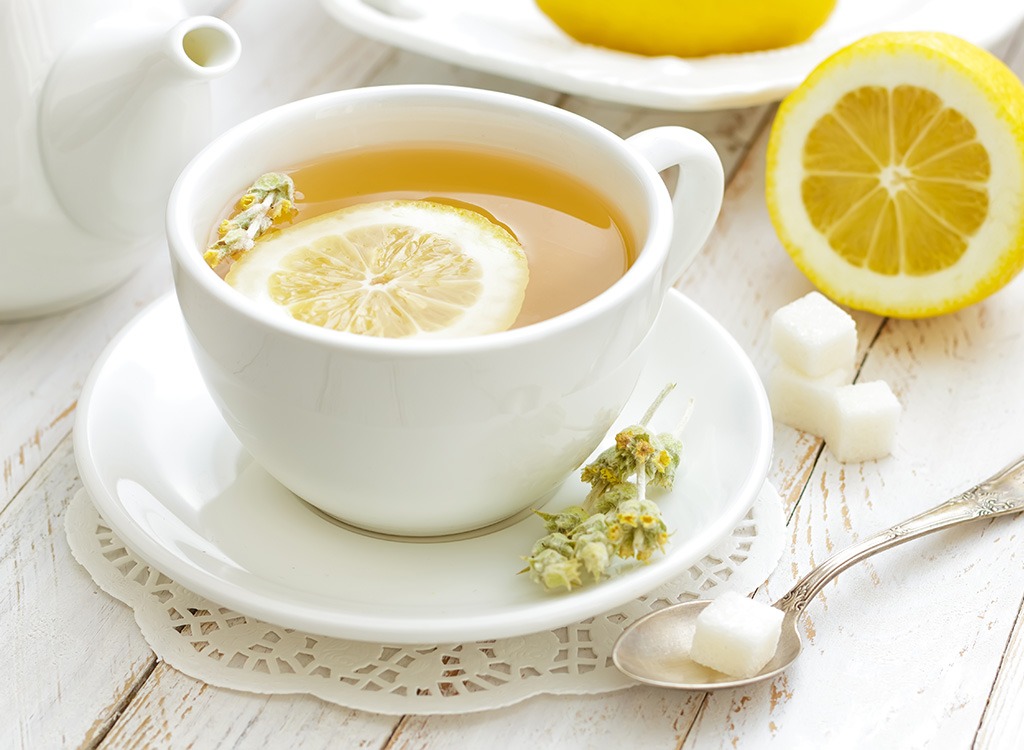
"White tea, green tea, and black tea have all been shown to protect against collagen damage," says Dr. Katta. "In one laboratory study, white tea was shown to block the effects of an enzyme called collagenase. I call collagenase a 'scissor enzyme' due to its ability to attack and weaken the collagen fibers that support our skin. Blocking the activity of this enzyme is one important way to protect your collagen."
Chlorophyll
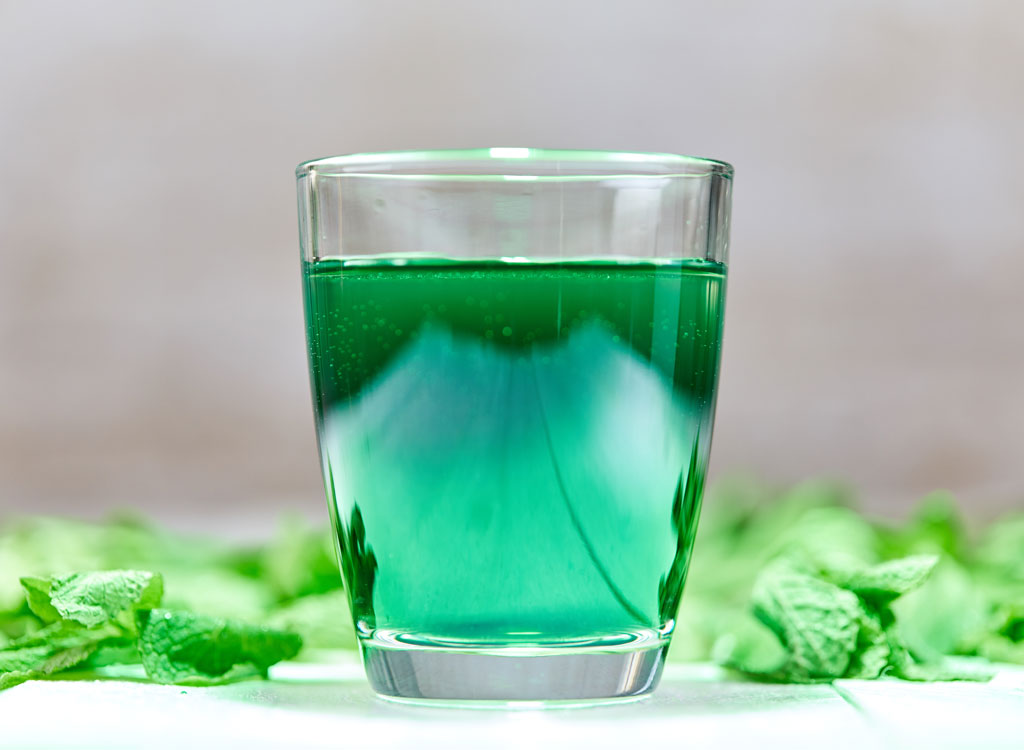
"Take a shot of chlorophyll every day. It's a very simple way to get a super serving of greens every day, and it tastes like mint," says Vargas. "It will help to oxygenate the skin, assisting in keeping your complexion clear and bright."
Oats
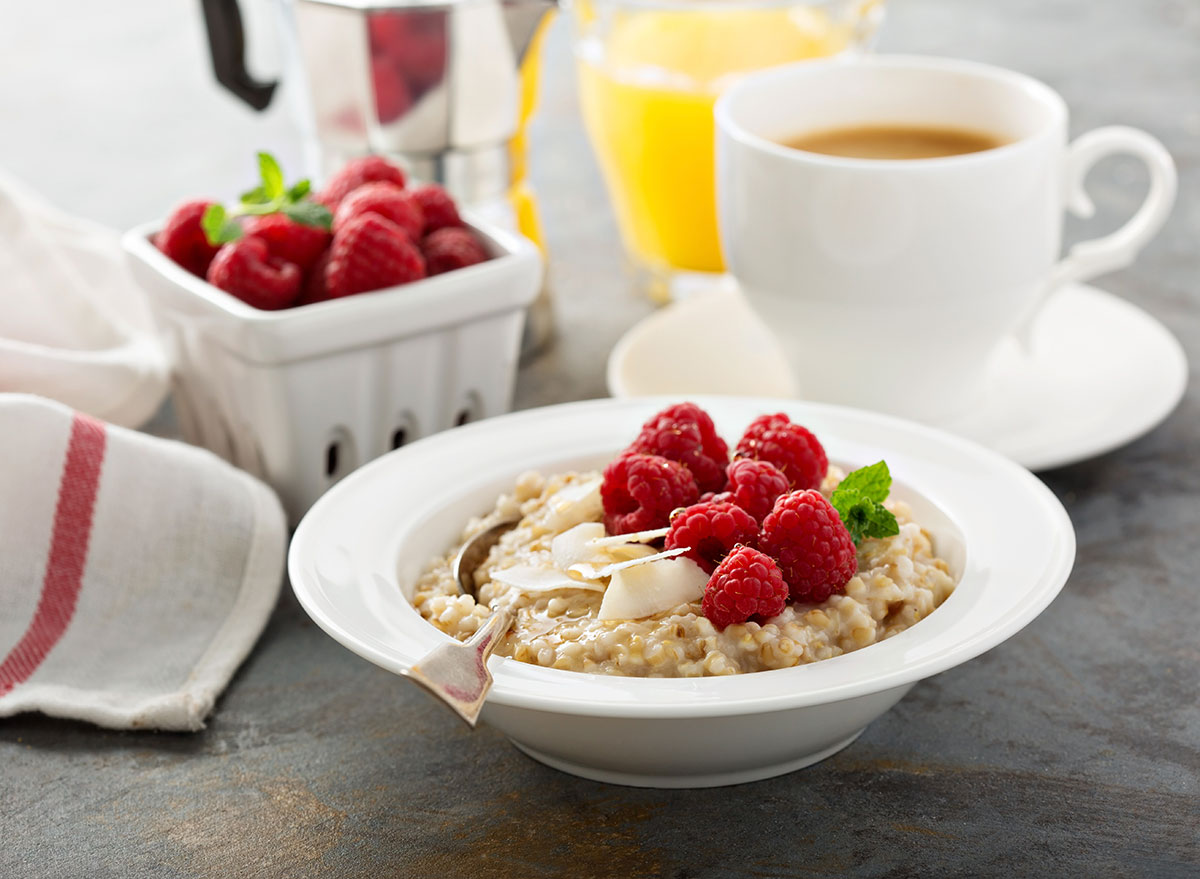
"Oats are a great source of fiber and have been shown to act as a prebiotic," says Dr. Katta. "Prebiotics are foods that help encourage the growth of good microbes in our gut. This is important because these good microbes produce compounds called short-chain fatty acids which have been shown to help strengthen the lining of the gut and the skin barrier." Poor skin health isn't the only indication you may have to eat more prebiotic foods—check out these 12 Warning Signs You Have Poor Gut Health.

